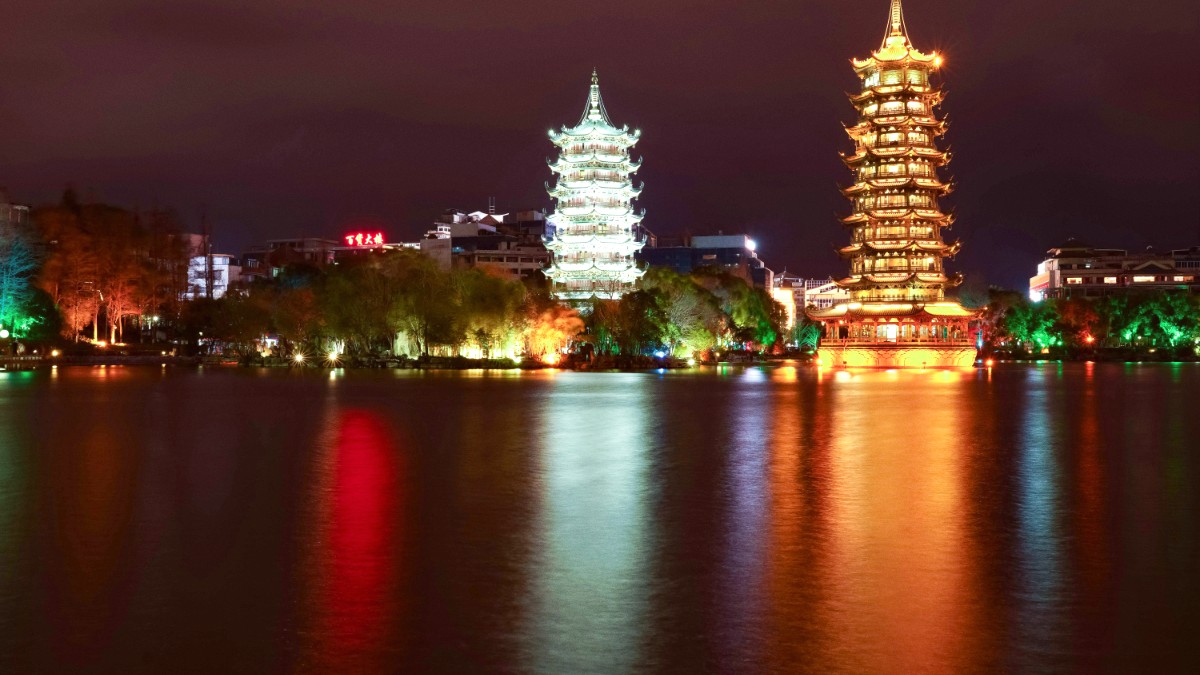
Guangxi, China
The Li River and surrounding karst landscape are a protected scenic area, part of an UNESCO World Heritage Site.
Efforts are made to control pollution and manage tourist impact within these designated protected zones.
Responsible water use is encouraged, especially in hotels. Turn off lights and air conditioning when leaving.
Help protect Guilin's natural landscape, its greatest asset, by being mindful of your environmental footprint.
Waste management systems are in place, but recycling infrastructure for tourists is limited.
Consider offsetting your flight emissions through reputable carbon offset programs.
Look for accommodations that promote environmental practices and sustainable operations.
Support businesses that demonstrate a genuine commitment to sustainability and local responsibility.
Support businesses offering reusable or sustainably sourced travel essentials.
Package Free ShopChoose outdoor gear from brands committed to environmental and social responsibility.
PatagoniaInteracting respectfully with locals and supporting the economy enriches your experience and fosters positive relationships.
Engage with locals in a way that respects their customs and traditions.
Support local crafts and traditional performances that genuinely preserve culture.
Respect privacy. Not everyone wishes to be photographed, especially in private settings or sensitive areas.
Dress modestly and maintain respectful conduct when visiting temples or other religious sites.
Support the local economy directly and contribute positively to the communities you visit.
Staying in local guesthouses and eating at family-run restaurants directly supports local communities.
Look for local handicrafts made by artisans, ensuring your money reaches the producers directly.
The Rainforest SiteBe wary of aggressive touts. Avoid contributing to practices that exploit animals or human labor.